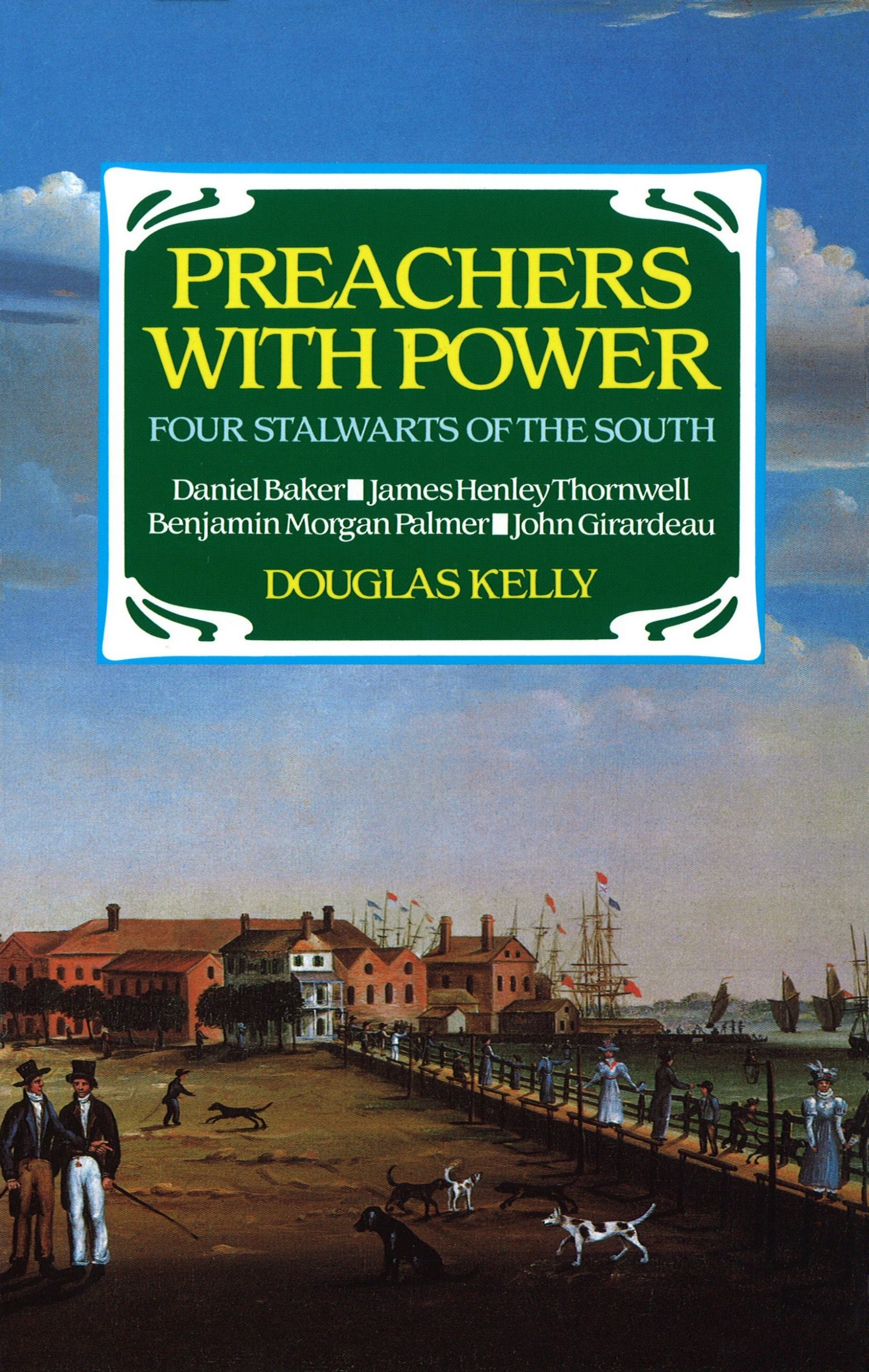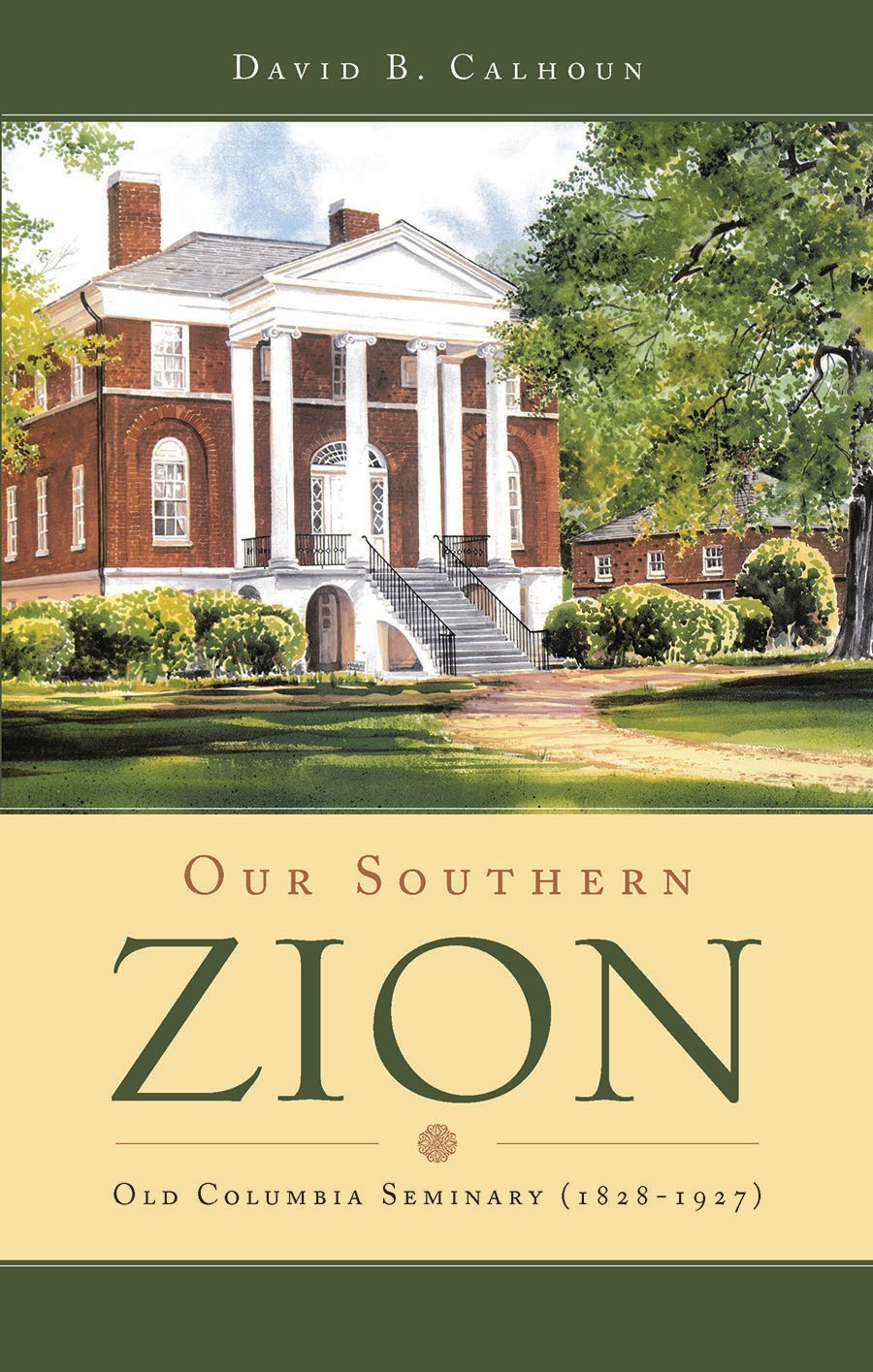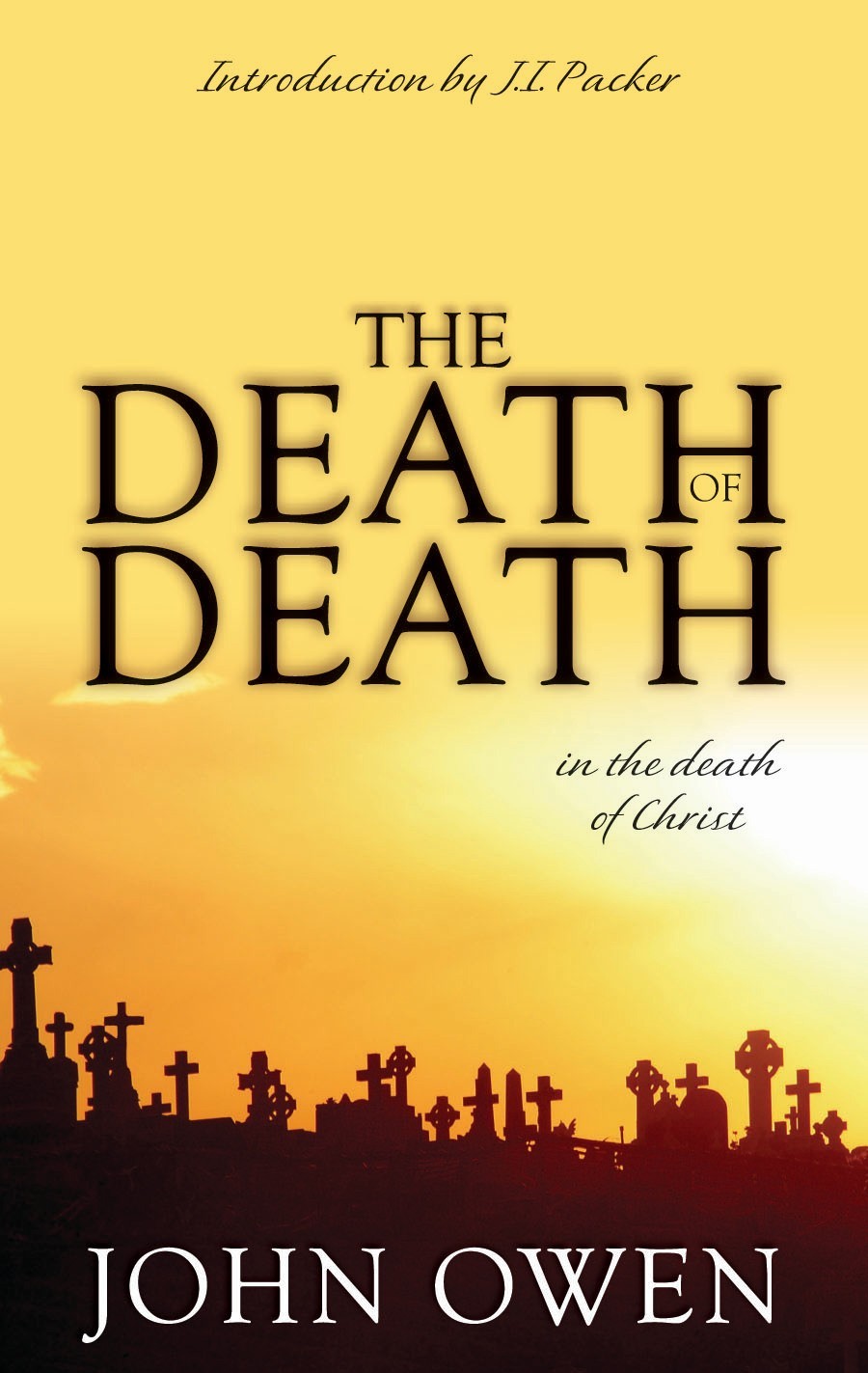A Casket without a Jewel
Daniel Baker (1791-1857) of Georgia was one of the outstanding evangelists of the Presbyterian Church in America. Late in his life, Baker wrote a letter to one of his sons, a young minister, answering the question as to why God blessed his preaching:
If you ask me why my preaching is so much blessed, I say again, ‘even so Father, for so it seemed good in thy sight’. But if it will throw any light on the subject, I tell you that my plan is incessantly to preach Christ and him crucified; and this I do in an earnest, colloquial manner, and not infrequently, streaming tears attest the sincere and tender feelings of my own heart, aiming at the conversion of sinners.1
He later exhorts his son:
Remember, my son, this saying of your father, that the sermon which does not distinctly present Christ in the beauty and glory of his mediatorial character is no better than a cloud without water, a casket without a jewel, a shadow without the substance, or the body without the soul.2
In the last fifty years we have been encouraged by a recovery of the doctrines of the Reformed Faith. But perhaps we have become more enthralled with theological concepts and systems of doctrine than with the Person and work of the Lord Jesus Christ. As Dr J. I. Packer remarks: ‘The Puritans knew that the traveller through the Bible landscape loses his way as soon as he loses sight of the hill called Calvary.’3 Andrew Bonar, towards the end of a long and fruitful ministry, could say: ‘For fifty years the Lord hath kept me within sight of the Cross.’4 He wrote a precious little volume entitled, The Gospel Pointing to the Person of Christ. ‘Live within sight of Calvary,’ said the saintly M’Cheyne, ‘and you live within sight of glory.’5
We see from the New Testament that although Paul’s teaching covered the whole spectrum of revealed truth, in his preaching he centred upon the Cross of Christ:
We preach Christ crucified (1 Cor. 1:23).
For I determined not to know nothing among you save Jesus Christ and him crucified (1 Cor. 2:2).
God forbid that I should glory save in the cross of the Lord Jesus Christ, by whom the world is crucified unto me and I to the world (Gal. 6:14).
We can give some reasons why Paul concentrated on the Cross.
1. It is the place of the glory of God
Horatius Bonar said:
God’s design is to glorify himself and to show to the whole universe what an infinitely glorious Being he is. This is his mighty end in all he does and says to manifest himself, and show forth his glory. For this sin was allowed to enter the world; for this the Word was made flesh; for this the Son of God shed his blood and died; for this he is taking out of the world a people to himself; to this all things are tending.6
The Apostle John declared: ‘And the Word was made flesh and dwelt among us (and we beheld his glory, the glory as the only begotten of the Father) full of grace and truth’ (John 1:14). The apex of his glory is the splendour of his grace in the Cross. It is there that we are given to see ‘the light of the knowledge of the glory of God in the face of Jesus Christ’ (2 Cor. 4:6). Luther insisted that there is enough of the revelation of God in the Cross of Christ to last a man all his days. In what was described by Robert Candlish as the greatest sermon ever preached, ‘Glorying in the Cross of Christ,’ John McLaurin declared:
Here shines spotless justice, incomprehensible wisdom, and infinite love all at once. None of them darkens or eclipses the other; every one of them gives a lustre to the rest. They mingle their beams and shine with united eternal splendour; the just Judge, the merciful Father, and the wise Governor. No other object gives such a display of all these perfections; yea all the objects we know give not such a display of any one of them. Nowhere does justice appear so awful, mercy so amiable, or wisdom so profound.7
A similar view comes from James H Thornwell: ‘Here His Deity appears in full-orbed radiance as Deity in action. Nowhere else can the Son be seen in all the intensity of His glory.’8
2. It is the place of conviction of sin
There is no place like Calvary to bring the sinner to a true conviction of his sin. We have to think upon the light which the Cross casts on sin. There it is seen to be an infinite evil. Howell Harris remarked in one of his letters:
Who can set forth the riches of his death and the unfathomable abyss of his sufferings? The inexpressible evil of sin appears more clearly than if we saw all the misery of the damned.’9
In his sermon on the Day of Pentecost, Peter accused his hearers of the crucifixion of the Lord Jesus Christ: ‘Him … ye have taken, and by wicked hands have crucified and slain’ (Acts 2:23). This brought conviction to their hearts and we are told, ‘now when they heard this, they were pricked in their heart’ (Acts 2:37). W. C. Robinson in his lectures entitled, The Word of the Cross, quotes W. Elert as he shows how the Cross was the culmination of man’s hostility to God.
The individuals who had a part in the persecution and execution of Christ were only the organs of the whole hostile fellowship that has always been in conflict with God, and to this fellowship each of us belongs. The death of Christ is an act of human enmity toward God.
Robinson goes on to declare:
Here we see the heinousness of our sin as we see it nowhere else. It is my sin that crucified him; it is my guilt that that he expiated, my penalty which he endured: those are the hateful expressions of the sins of my heart which dragged him to the cross, which spit upon him and mocked Him. Yea all that outbreak of sin is a revelation of the venom which works in my breast; all that agony was necessary to save me.10
3. It is the place of the power of salvation
The gospel is ‘the power of God unto salvation to every one that believeth’ (Rom. 1:16; 1 Cor. 1:24). Through his glorying in the Cross of Christ, Paul could say, ‘by whom the world is crucified to me and I unto the world’ (Gal. 6:14). Samuel Davies, in one of his sermons, declares:
A religion for sinners must reveal a way of salvation for the lost, of pardon for the guilty and sanctifying grace for the weak and wicked. And blessed be God, the gospel answers this end; and it is its peculiar excellency that it does so.11
John Brown of Edinburgh said: ‘Nothing is so well fitted to put the fear of God, which will preserve men from offending him, into the heart as an enlightened view of the cross of Christ.’12
The great Scottish churchman Thomas Chalmers (1780-1847) spent the early years of his ministry at Kilmany in Fife thundering against the iniquities of Napoleon and the grosser sorts of sins. But when he was called from that congregation to Glasgow he said to his parishioners:
For the first eight years of my twelve with you I thundered away against crimes of every sort, but the interesting fact is that during the whole of that period I never once heard of any reformation being wrought among you. It was not until the free offer of forgiveness through the blood of Christ was urged upon you that I ever heard of those subordinate reformations which I made the ultimate object of my earlier ministry. You have taught me that to preach Jesus Christ is the only way of preaching morality, and the lesson I have learned in your humble cottages I shall carry into a wider field.13
It is the Cross-centred gospel that is concerned to give all the glory to God and produce God-centred lives. In his introduction to John Owen’s The Death of Death in the Death of Christ, Dr J. I. Packer contrasts the modern gospel with that of the Puritans:
It fails to make men God-centred in their thoughts and God-fearing in their hearts because that is not primarily what it is trying to do. One way of stating the difference between it and the old gospel is to say that it is exclusively concerned to be ‘helpful’ to man – to bring peace, comfort, happiness, satisfaction – and too little concerned to glorify God.14
We re-echo the words of Horatius Bonar spoken in the face of the decline of the gospel in 19th century Scotland:
Our advanced thinkers and men of expansion demand a Christ for the nineteenth century; but no such Christ has arisen or shall arise. It must either be the first-century cross, the first-century gospel, the first-century Christ or no cross, no gospel, no Christ at all.15
A gospel without the Cross is indeed a casket without a jewel.
Notes
- Douglas Kelly, Preachers with Power (Banner of Truth, 1992), p. 49.

Preachers With Power
Four Stalwarts of the South
price $21.60Description
Daniel Baker (1791-1857) of Georgia was one of the outstanding evangelists of the Presbyterian Church in America. Late in his life, Baker wrote a letter to one of his sons, a young minister, answering the question as to why God blessed his preaching: If you ask me why my preaching is so much blessed, I […]
- David B Calhoun, Our Southern Zion (Banner of Truth, 2012), p. 24.

Our Southern Zion
Old Columbia Seminary (1828-1927)
price $26.10Description
Daniel Baker (1791-1857) of Georgia was one of the outstanding evangelists of the Presbyterian Church in America. Late in his life, Baker wrote a letter to one of his sons, a young minister, answering the question as to why God blessed his preaching: If you ask me why my preaching is so much blessed, I […]
- J. I. Packer, A Quest for Godliness: The Puritan Vision of the Christian Life (Crossway, 1990), p. 286.
- Reminiscences of Andrew A. Bonar D.D. (Hoddder & Stoughton, 1895), p. vi.
- Andrew A. Bonar (Ed.), Memoir & Remains of Robert Murray M’Cheyne (repr. Banner of Truth, 1966), p. 349, in a sermon on Hebrews 3:1.

price $31.50Description
Daniel Baker (1791-1857) of Georgia was one of the outstanding evangelists of the Presbyterian Church in America. Late in his life, Baker wrote a letter to one of his sons, a young minister, answering the question as to why God blessed his preaching: If you ask me why my preaching is so much blessed, I […]
- Horatius Bonar, Truth and Error, or Letters to a Friend on Some of the Controversies of the day (W. P. Kennedy, 1846), pp. 24-25.
- Precious Seed (Edinburgh, 1877), p.13.
- Collected Writings of James Henley Thornwell, Volume 2 (repr. Banner of Truth, 1974), p. 414. [Out of print.]
- A brief account of the life of Howell Harris, Esq. (Trevecka, 1791), p. 202, in a letter to Mrs Whitefield, dated 1749.
- W. C. Robinson in The Word of the Cross (London 1940), pp.116, 128.
- Samuel Davies, et. al., Sermons on Important Subjects, Volume II (New York, 1792), p. 97; Sermon XXIV: ‘The Preaching of Christ Crucified the Means of Salvation’ (1 Cor. 1:22-24).
- John Brown, Expository Discourses on the First Epistle of the Apostle Peter (New York, 1855), p. 325.
- Quoted in Towards the Great Awakening by Sidney W. Powell.
- John Owen, The Death of Death in the Death of Christ (repr. Banner of Truth, 1959), p. 1.

price $15.30Description
Daniel Baker (1791-1857) of Georgia was one of the outstanding evangelists of the Presbyterian Church in America. Late in his life, Baker wrote a letter to one of his sons, a young minister, answering the question as to why God blessed his preaching: If you ask me why my preaching is so much blessed, I […]
- Horatius Bonar, Our Ministry (Edinburgh, 1883), p. 112.
Rev. John J. Murray is a retired minister of the Free Church of Scotland Continuing. Links to Banner of Truth books, and Notes 3-6, 8, 9, 11, & 12 have been added.
Latest Articles
Finished!: A Message for Easter March 28, 2024
Think about someone being selected and sent to do an especially difficult job. Some major crisis has arisen, or some massive problem needs to be tackled, and it requires the knowledge, the experience, the skill-set, the leadership that they so remarkably possess. It was like that with Jesus. Entrusted to him by God the Father […]
Every Christian a Publisher! February 27, 2024
The following article appeared in Issue 291 of the Banner Magazine, dated December 1987. ‘The Lord gave the word; great was the company of those that published it’ (Psalm 68.11) THE NEED FOR TRUTH I would like to speak to you today about the importance of the use of literature in the church, for evangelism, […]
